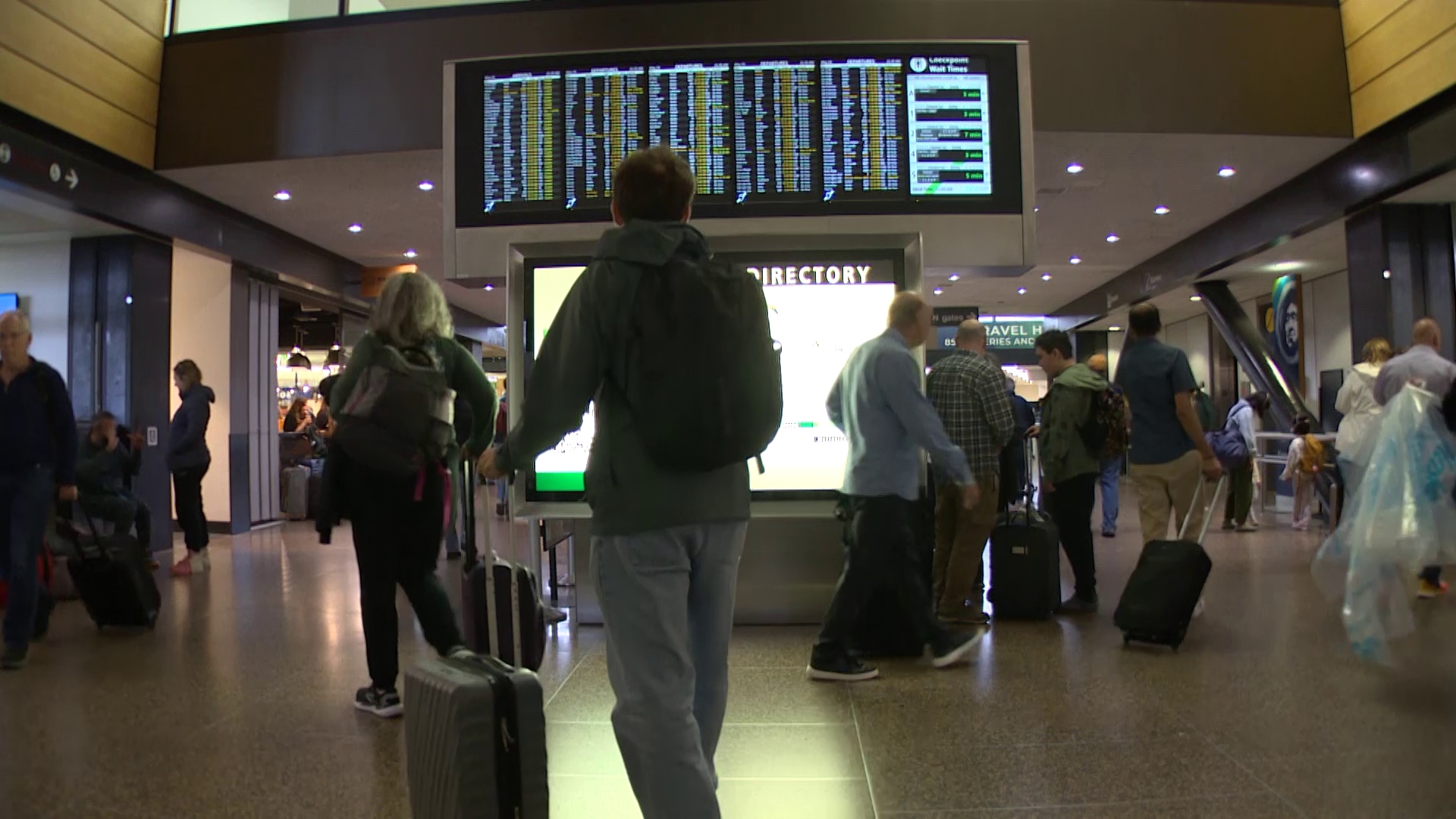SEATAC, Wash. — Travelers who passed through Seattle-Tacoma International Airport on May 10-11 may have come in contact with a person infected with measles, according to an announcement from Public Health – Seattle & King County.
The infectious traveler is from Arizona and was likely exposed to measles while traveling to or within Europe, according to Public Health. The person’s measles vaccine status is unknown.
“Measles is highly contagious and if you don’t have immunity, you can get it just by being in a room where a person with measles has been,” said Dr. Eric Chow, communicable disease chief for Public Health – Seattle & King County.
The traveler with measles was in the S Concourse (Gate S1) and went through customs to international baggage claim carousel 19 between 5:30-9:30 p.m. on May 10.
The following day, the traveler went through the A Concourse to Gate A8 between 7:30-11:30 a.m. The timeframes provide by public health include the traveler's actual time of arrival and two hours after.
The traveler was at the airport before they were diagnosed with measles. Public Health said the measles virus can remain in the air for up to two hours after someone infectious with measles leaves the area.
Measles is highly contagious and can cause fever, rash, cough, runny nose, and red, watery eyes, according to Public Health. If not protected against the disease, it can spread in the air after a person with measles coughs or sneezes, according to Public Health.
Anyone who may have come in contact with the infectious traveler, and who is not immune to measles, would likely experience symptoms within a week to three weeks after exposure, or between May 17 to June 1.
Chow said now is an important time to check your vaccination status and get vaccinated if you aren’t protected.
"Fortunately, the measles vaccine is very effective," Chow said in the release. Two doses of measles, mumps and rubella (MMR) vaccine provides about 97% protection for life against getting infected by measles, he said.
People at the highest risk are infants and kids under 5 years old, adults over 20 years old, pregnant people and people with weakened immune systems, according to Public Health.
As of April, measles cases hit nearly double the total for all of last year across the nation.
The U.S. Centers of Disease Control and Prevention documented 113 cases as of April 5. There have been seven outbreaks and most of U.S. cases — 73% — are linked to those flare-ups.
Still, the count is lower than some recent years: 2014 saw 667 cases and 2019 had 1,274.
This story includes reporting from the Associated Press.

